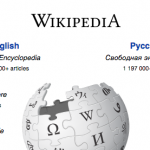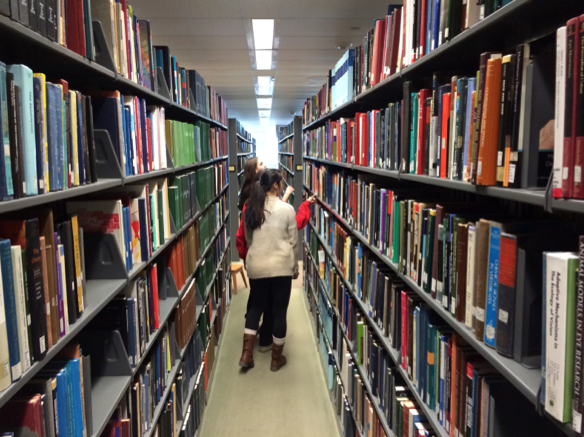 When was the last time you walked into a library to pick up a book? Do you remember the title of the book? Do you remember how many books you left the library with? In the Wikipedia class that I co-teach with two Mann library staff (Ashley Downs and Kelee Pacion), we asked our students to go and find a book in the library, and use that book as a reference for their biology-related Wikipedia entry.
When was the last time you walked into a library to pick up a book? Do you remember the title of the book? Do you remember how many books you left the library with? In the Wikipedia class that I co-teach with two Mann library staff (Ashley Downs and Kelee Pacion), we asked our students to go and find a book in the library, and use that book as a reference for their biology-related Wikipedia entry.
There was mixed confusion and excitement in the air. Some groups walked out of the classroom and then stopped, wondering how to find a book in a library that they frequently visit to use the computers, to print their term papers, or simply to take a quick nap in one of the comfortable chairs. “I haven’t needed to find a book since high school” and “this is just like a treasure hunt” the students told me, as they disappeared in the stacks of the 3rd floor of Mann library.
You may be thinking: “What are the benefits of finding a book in this modern age?” A scene from the first Matrix movie may answer that. Do you remember when Trinity and Neo decide to rescue Morpheus? Suddenly shelves and shelves of ammunitions appear, and they stock up. The stacks in the library are just like that. You go and find a book but you rarely walk out with only one. These books are organized by topic, so when you locate one, you locate an arsenal of books on the same topic, expressing different opinions or the same information digested by different scientists. These books, among other publications, become important resources for Wikipedia editors, or so-called Wikipedians.
“Most students (and to be honest: so do I), first go to Wikipedia to learn about a new phenomenon.” – Dr. Mark Sarvary
Instead of fighting this habit, we decided to educate students in biological sciences about how to edit and correct these Wikipedia entries, so budding biologists find reliable information when they open this modern, virtual encyclopedia. Our Wikipedia students decided to edit challenging topics, such as genetically modified sperm, osmoconformers, the fear-avoidance model in child development, and fusiform gyrus. While our Wikipedia students may still be taking core biology courses, they can become the experts of their topic of choice through collecting information from many resources, and sharing it with the world through Wikipedia. This is a special form of science communication that empowers the author, starts conversations with other Wikipedians all over the world, and engages readers who would like to learn more about this topic.
Our Wikipedia course is just one of the many BioG1250 seminar courses that are offered by the Office of Undergraduate Biology to help students explore interesting topics in biology. If you are interested in joining this treasure hunt for knowledge, or would like to become a Wikipedian, start by following the inviting vanilla scent of books to the library. – Dr. Sarvary
